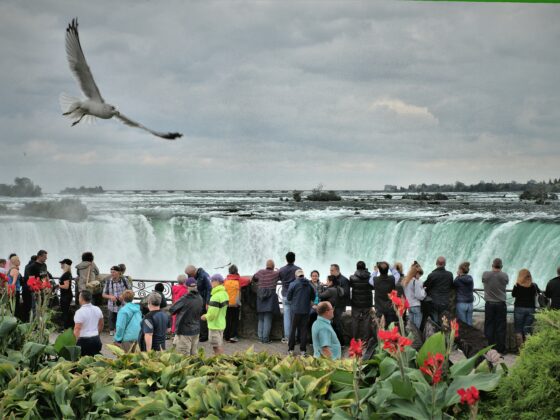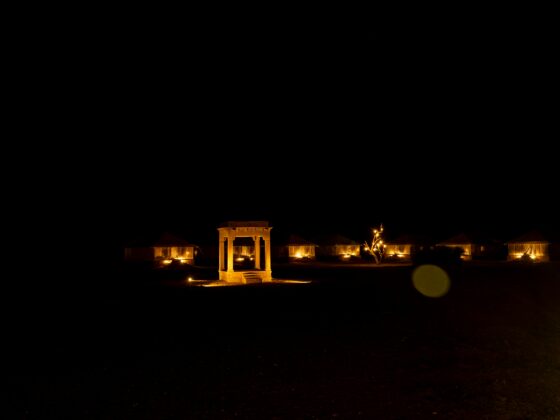
The hotel industry is going through a thorough transformation, which requires a new approach from owner representatives. In this article we look at what these industry changes mean for next-generation representation, how owner attitudes and requirements are evolving and which areas require special attention from representatives.
Gone are the days when hotels sold only rooms, it is no longer just about heads in beds. Hotel assets are becoming a much more complex real estate proposition with significant leisure, entertainment, food & beverage, retail, commercial or residential components. Hybrid concepts often blend or combine traditional hotel services with long-stay or serviced apartments, office spaces, co-working and co-living, or student housing.
These shifts in hotel real estate come hand in hand with increasing efforts by most properties to diversify and differentiate offerings in order to meet fast-evolving customer demand and generate new revenue streams. Many hotels – especially those with more facilities open to the public, operating in a mixed-use property or with a flex-hybrid model – cater not just to guests, but also to local communities. Others target global communities with specialized features – just think of eco-resorts, yoga retreats or members-only properties.
Another aspect of transformation representatives must consider is that hotel owners are much more savvy and better informed today when it comes to developing or managing assets. Simply put, they don’t need someone to tell them the time using their own watch, they want a complex and holistic contribution from their representatives.
The extent of relying on owner representation may depend on the type of ownership. Independent owners often want to have an active role in renovations and other developments or managing daily operation, while institutional investors or real estate investment trusts with big portfolios may not be able to directly supervise projects or management.
Playing A Key Role in Construction Projects
Owner representation means acting on behalf of the investor, ensuring that its goals are met and its interests are protected. Representatives could be hired for a single project, where they need to oversee some or all phases of the development from design to construction and close out. Most important asks include coordinating with contractors, suppliers and other parties involved.
Owners lacking the necessary skills or time could find representation highly beneficial especially as supply chain disruptions, price hikes and labour shortages increasingly affect construction. It doesn’t come as a surprise that this appears to be a growing market: owner representation accounts for an estimated 5% of the global construction consulting market, which is forecast to expand by 8% annually to around $20 billion by 2033 from less than $11 billion in 2025.
Keeping the project on schedule and preventing cost overruns is also among the key responsibilities of owner representatives. Investors and developers struggle with significant delays and cost overruns: McKinsey has found that large construction projects globally have delays averaging 52% compared to the initial time frames and cost overruns reaching a whopping 79% of original budget estimates in average.
Hotel projects can easily go sideways if the investor has little experience in hospitality and selects contractors that are not suitable for the development. But an experienced owner representative stepping into ongoing projects that are off track can still fix the mistakes and save significant amounts of time and money in many cases.
Going Beyond Project or Asset Management
Owner representation in the hotel industry can go way beyond project management for a single development or even asset management for an already operating property. It can encompass the entire ownership cycle from the acquisition or launch of a new property to day-to-day operation and the eventual divestment or disposal of the asset.
Representatives can play an important role in selecting a hotel operator – an increasingly complex task – and modifying existing management contracts, or even replacing the management contract with a franchise agreement. Closely liaising with the hotel management company and the property’s general manager is also an important part of the job.
Hotel owner representatives must be of many talents, as the scope of their work ranges widely in day-to-day operation. First and foremost, they assist owners in boosting revenue and profit by assessing current revenue flows, exploring potential new revenue sources and putting new pricing practices in place. Owners can also rely on them to improve operational efficiency and reduce costs by monitoring supplier contracts or staffing, among others.
For next-generation hotel representation, it is imperative to assess revenue and profit growth opportunities by evaluating the entire asset – including various hotel departments as well as any related facilities. Should the overall asset include other real estate components, such as entertainment, retail or residential, their impacts must be also carefully examined.
Opportunities for representatives to creatively and proactively contribute to certain activities, such as product development or marketing, may be limited depending on whether or not the asset is affiliated with a brand. Unaffiliated properties could be faster and more flexible in bringing new products to market or adjusting campaigns to market changes compared to, for example, branded assets run under franchise contracts that prescribe strict controls.
Focusing on Funding, Management Relations
One of the areas next-generation representatives should put special focus on is assisting owners with financing. Securing funding, providing advice on refinancing or restructuring existing debt and monitoring loan compliance is a very important issue, as financing in general is an area of concern for all owners as interest rates are not coming down. Providing professional guidance in this field is truly valuable for the owner.
About 88% and 86% of hotel executives said in a Deloitte survey in 2024 that their top priorities for the next 12 months would be managing cash flow and improving performance, respectively. Some 79% and 71% still named rising costs and high interest rates as immediate risks to growth in 2025.
In terms of mergers and acquisitions, 54% of the respondents said they planned more deals going into 2025. Owner representatives can also provide due diligence and underwriting services. Deloitte has also found that investors increasingly focus on partnerships and joint ventures to share risks and expertise. About 39% of executives expected to partner with other organisations both in and outside the hospitality industry in 2025, up from just 19% a year earlier. This finding underlines that forming partnerships continues to be a trend owner representatives should also watch for in the coming years.
Another important area that requires special attention from next-gen representatives is building a balanced relationship with the hotel management company and the general manager. This should be more of a partnership instead of a subordinate role for the management – the concept ‘we represent the owner and you work for us’ is not the right way of doing business here. Agreeing on short- and long-term goals and targets with the management is also essential.
In the same vein, it is imperative for any owner representative to increase communication with the hotel manager and have meetings at least on a weekly basis. Frequently discussing the manager’s plans or concerns on revenue management or profit generation not only helps getting a more detailed picture on the current situation and outlook for the property, but also conveys the message that the representative works together with the manager in a real partnership.
Requesting more frequent – at least quarterly – meetings with regional or head office teams and insisting on a more collaborative approach is also beneficial. Asking thorough questions about their marketing and brand strategies or how they see brand growth and direction can show that the representative cares about their professional success but also wants to make sure that the asset is appropriately represented.
Holistic Approach, No Standard Solutions
Being able to follow the owner’s overall long-term vision requires next-generation representatives to take a holistic strategic approach that involves much more than traditional asset management. Representatives should look at the entire asset and break it down to its various components in order to enhance performance and boost value over the ownership cycle.
The holistic approach also includes providing support in all phases of the investment, from acquisition or initial launch to further developments and eventual disposition.
Our examples confirm that there are no cookie-cutter solutions in owner representation services at hotels, as owner goals and property profiles can vary from hotel to hotel. This underlines the need for representatives to be as flexible as possible to meet all the requirements.
Important features of efficient and up-to-date owner representation includes taking an objective position with a hands-on attitude in overseeing the hotel’s operation. Representatives should provide creative and customized input on how to find potentially hidden revenue potential and optimize return on investment by looking at the entire real estate asset. This also applies to capital planning, competitive positioning, controlling costs, increasing staff efficiency as well as tapping into innovative hotel tech tools to improve marketing and guest communication.
Owner representatives should aim to develop a true partnership and deeper communication with the management company responsible for operation as well as the property’s general manager. Providing tangible guidance on funding and refinancing is also a must.
All this goes to show that next-generation owner representation is no easy feat, by any means. But if done well, it can create tremendous value for the hotel and its owners.
Reprinted from the Hotel Business Review with permission from www.HotelExecutive.com.
Roger A. Allen
Group CEO of RLA Global
RLA Global








